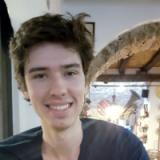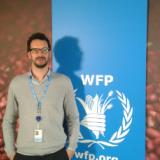Optimizing the World Food Programme
Tilburg University uses data analytics for a better and safer world. Making the algorithms applied by the United Nations’ World Food Programme more effective is a case in point.
In 2015, the UN challenged Tilburg University to optimize its supply chain by means of data analytics. Operations Research Professor Hein Fleuren took up the gauntlet, with the help of a talented Research Master student: Koen Peters. Peters is now working as a consultant at the World Food Programme in Rome and is affiliated to Tilburg University as an external PhD student.
Objective
The United Nations World Food Programme helps people in crisis situations. One of the most important issues facing the UN is, given a particular budget, how it can provide as many people as possible with food that is as nutritious as possible.
-

Riley Badenbroek
Student intern at World Food Programme"Definitely one of the coolest ways to use math for optimization"
Approach
Koen Peters developed a model with all kinds of variables. What kind of food does a person need every day – and how much? What are the current prices of food and where can we get sufficient amounts of particular foods? What is necessary in terms of logistics – and what are the costs involved?
Rather than a step-by-step approach to the supply chain (composing a food package, purchase, shipping, distribution), all the variables are brought together in the model. The purchase price is a factor in the composition of the food package and so is the purchase location and the distribution method (in a camp, via the local market, etc.). As many pieces of the puzzle have been included in the model.
The model is still being improved, as is the implementation and the user software.
-

Nils van Wassenhove
Head Supply Chain Development World Food Programme"The model we developed together is really a game changer"
Impact
- As a result of the outcome generated by the model, the World Food Programme was able to significantly improve the food supply in Syria, Iraq, Yemen, and Ethiopia and save millions of dollars. The model is being used in four to five large food operations a year;
- More than 20 million dollar has been saved so far;
- In 2017, the model will be applied in the ten largest food operations;
- Three Tilburg University students have successfully completed an internship and a thesis as part of the project. Two of them have since been employed as consultants at the World Food Programme in Rome;
- The optimization model is the subject of new PhD research by Koen Peters at Tilburg University. PhD supervisors: Professor Hein Fleuren, Professor Dick den Hertog.
-

Koen Peters
PhD candidate and Consultant World Food Programme"It is important to speak the same language to make the cooperation work"
Publication
- Discussion Paper CentER, Tilburg University: The Nutritious Supply Chain: Optimizing Humanitarian Food Aid. By Peters, K., Fleuren, H.A., Hertog, D. den, Kavelj, Mirjana; Silva, Sergio; Goncalves, Rui; Ergun, Ozlem, & Soldner, Mallory (2016).
